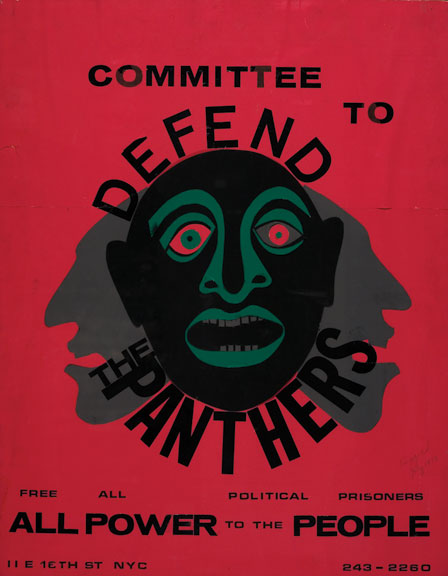[On March 27th, 2018 the Unit for Criticism & Interpretive Theory hosted the lecture "The Open Secret of Racial Capitalist Violence" by visiting scholar Jodi Melamed (Marquette). Below is a response to the lecture from Ezgi Guner (Anthropology).] Logics and Logistics of Racial CapitalismWritten by Ezgi Guner (Anthropology) Jodi Melamed began by acknowledging the indigenous nations of Illinois whose absence within the borders of the state testifies to “the open secret of racial capitalist violence,” the topic of Melamed’s new book project and the day’s lecture. The open secret, as conceptualized by Melamed, refers to the violence inherent to capitalism, which is reproduced by the mundane technicalities of administrative power. Thus, she argues, capitalist violence is not a thing of the past, of a historical moment marked by primitive accumulation or originary accumulation as Melamed translates Marx’s notion that is transcended in the present. Rather, it is systemic and ongoing, recursive and constitutive, pervasive, yet not omnipotent. The settler colonial logics that resulted in the territorial dispossession of the native peoples of Illinois, today underpin neoliberal forms of accumulation on a global scale, and produce similar effects. Settler regimes in the present reverberate with those of the past, just as earlier forms of U.S. settler colonialism echo in Israel’s occupation of Palestine. [caption id="attachment_1793" align="aligncenter" width="448"] Faith Ringgold, Committee to Defend the Panthers, 1970[/caption] In order to discuss how all capitalism is racial capitalism, Melamed went back to Marx, reading a quote from his critique of the ideological naturalization of social inequality inherent to capitalist relations of production. Marx argues that in the “nursery tale” of capitalism, its fictional origin story, the distinction between “the frugal elite” who make wealth without having to labor and “the lazy rascals” who labor without making wealth, serves to justify capitalist social asymmetry. For Melamed, the unequal human worth and capacity reflected in this fairy tale is mapped onto racial hierarchies that are being reproduced by global capitalism in the present. Administrative power is the means through which racial violence becomes an “open secret” under the guise of routine calculations and everyday procedures. [caption id="attachment_1794" align="aligncenter" width="489"]
Faith Ringgold, Committee to Defend the Panthers, 1970[/caption] In order to discuss how all capitalism is racial capitalism, Melamed went back to Marx, reading a quote from his critique of the ideological naturalization of social inequality inherent to capitalist relations of production. Marx argues that in the “nursery tale” of capitalism, its fictional origin story, the distinction between “the frugal elite” who make wealth without having to labor and “the lazy rascals” who labor without making wealth, serves to justify capitalist social asymmetry. For Melamed, the unequal human worth and capacity reflected in this fairy tale is mapped onto racial hierarchies that are being reproduced by global capitalism in the present. Administrative power is the means through which racial violence becomes an “open secret” under the guise of routine calculations and everyday procedures. [caption id="attachment_1794" align="aligncenter" width="489"] Mona Hatoum, Hot Spot III, 2009[/caption] In her larger work, Melamed discusses administrative power as (1) police procedures, which she calls “the visible hand of the market”; (2) exercise of rights, which amount to the right to be unencumbered by concern for the wellbeing of others; and (3) geoeconomic strategies of command and control. Her talk mostly dwelled on the third form of administrative violence, geoeconomic strategies, which are materialized in settler capitalist logisticality. By settler capitalist logisticality, Melamed means the infrastructures of accumulation and property ownership that sustain capital circulation, control mobility, and reproduce social inequality. Borders, checkpoints, free trade zones, reservations, and global assembly lines, among others, build and maintain securitized and asymmetrical flows. The discussion following Melamed’s lecture was centered around the question of alternatives. Are alternative forms of collective existence possible in a world where the terms of social relationality are dictated by administrative violence? Can the social separateness imposed by racial colonial capitalism be reversed? Indeed, Melamed responded, she might not have emphasized it enough, but after all human sociality could not be captured by the logics and logistics of racial capitalism in its totality. Our lives resisted yielding to the norms and forms of racial capitalism every day in multiple ways. More than anything, forms of resistance like boycotts and blockages that interrupt settler capitalist logisticality become sites of alternative sociality. From Charlotte and Ferguson to Palestine and Standing Rock, social resistance does not only disrupt racial capitalism, but generates novel forms of relationality. Two days after Melamed’s lecture, Tariq Ali, speaking of the revolutionary movements of the 20th century, remarked that history does not repeat itself, but it echoes. Just like the earlier forms of settler colonialism and racial capitalism keep echoing in contemporary forms of accumulation and dispossession, so does the history of resistance, as we most recently witnessed with the March for Our Lives movement!
Mona Hatoum, Hot Spot III, 2009[/caption] In her larger work, Melamed discusses administrative power as (1) police procedures, which she calls “the visible hand of the market”; (2) exercise of rights, which amount to the right to be unencumbered by concern for the wellbeing of others; and (3) geoeconomic strategies of command and control. Her talk mostly dwelled on the third form of administrative violence, geoeconomic strategies, which are materialized in settler capitalist logisticality. By settler capitalist logisticality, Melamed means the infrastructures of accumulation and property ownership that sustain capital circulation, control mobility, and reproduce social inequality. Borders, checkpoints, free trade zones, reservations, and global assembly lines, among others, build and maintain securitized and asymmetrical flows. The discussion following Melamed’s lecture was centered around the question of alternatives. Are alternative forms of collective existence possible in a world where the terms of social relationality are dictated by administrative violence? Can the social separateness imposed by racial colonial capitalism be reversed? Indeed, Melamed responded, she might not have emphasized it enough, but after all human sociality could not be captured by the logics and logistics of racial capitalism in its totality. Our lives resisted yielding to the norms and forms of racial capitalism every day in multiple ways. More than anything, forms of resistance like boycotts and blockages that interrupt settler capitalist logisticality become sites of alternative sociality. From Charlotte and Ferguson to Palestine and Standing Rock, social resistance does not only disrupt racial capitalism, but generates novel forms of relationality. Two days after Melamed’s lecture, Tariq Ali, speaking of the revolutionary movements of the 20th century, remarked that history does not repeat itself, but it echoes. Just like the earlier forms of settler colonialism and racial capitalism keep echoing in contemporary forms of accumulation and dispossession, so does the history of resistance, as we most recently witnessed with the March for Our Lives movement!